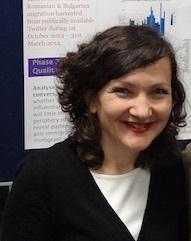About the project
This study investigates the overlapping impact of the COVID-19 and cost-of-living crises on individual and collective remittance practices amongst diaspora communities in the United Kingdom. Using an intersectional and relational approach and deploying innovative and creative participatory methods, the project will explore transnational household dynamics, relations and everyday practices.
There is an increasing urgency to understand the impact of multiple, overlapping national and global crises on individual and collective remittance practices. Whilst data is beginning to emerge on the impacts of COVID-19 on recipient households, the voices of remittance sending communities and households in the United Kingdom, across multiple axes of intersectional differences or oppressions and in context of an emerging cost-of-living crisis, remain absent. Salient questions, therefore, need to be asked about how the compounding, uneven nature of these crises shape remittance and investment decision-making and sending practices, including their individual and collective forms, and the consequences for transnational family and diaspora community dynamics. Further, little is known about how the technologies around remittance sending are changing alongside these, and in response.
The student will develop intersectional approaches and creative methodologies to researching diaspora-led development, using key informant interviews with UK diaspora and origin country community organisations, as well as creative digital participatory methods with transnational households and communities.
The study has strong policy relevance and it will benefit from the international research and policy practitioner networks in diaspora engagement developed by the supervisory team.
We are open to the choice(s) of communities the student will work with.
We strongly encourage applications from PhD candidates who are from a migrant/diaspora background and familiar with the (trans)local context and language(s) of the communities they will research with.
